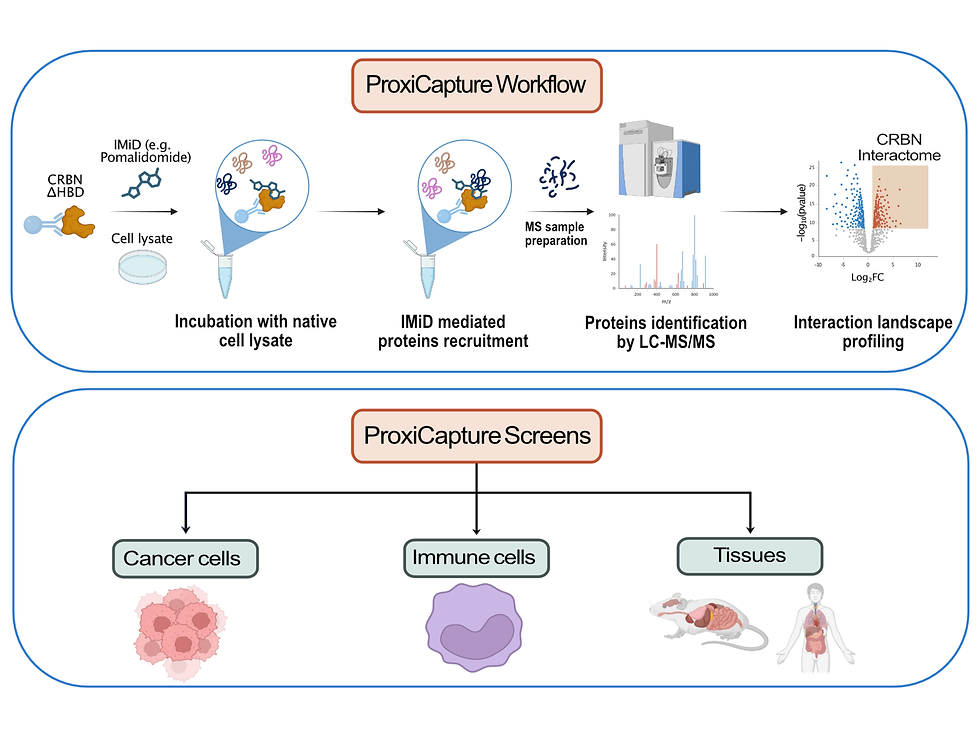Broad target screening reveals abundance of FKBP12-based molecular glues in focused libraries
- May 5, 2025
- 1 min read
Updated: May 9, 2025
A new publication in the Journal of Medicinal Chemistry the PROXIDRUGS project leader Felix Hausch and his team from TU Darmstadt, demonstrate that competitive, non-degradative molecular glues may be more widespread than previously assumed. The authors applied a broad screening approach using an FKBP-focused compound library with approx. 1200 drug-like molecules, testing them against 57 different protein targets spanning a wide range of target classes which included both druggable and challenging targets like transcription factors, protein–protein interactions, or phosphatases.
Their work uncovered three novel FKBP12-dependent molecular glues targeting the BD2 domain of BRD4 (bromodomain family), the phosphatase PTPRN, and the transcription factor MBP-STAT4 – of which PTPRN and STAT4 are considered to be undruggable. Notably, an optimized glue showed high cooperativity and specificity for the BD2 domain of BRD4 compared to the closely related BD1 domain. This demonstrates that molecular glues can be optimized by using classical strategies and have the potential to achieve domain selectivity, opening up new avenues for selective targeting of challenging proteins.
This study not only introduces a robust strategy for discovering non-degradative molecular glues but also highlights the untapped potential of repurposing focused libraries for molecular glue discovery.




